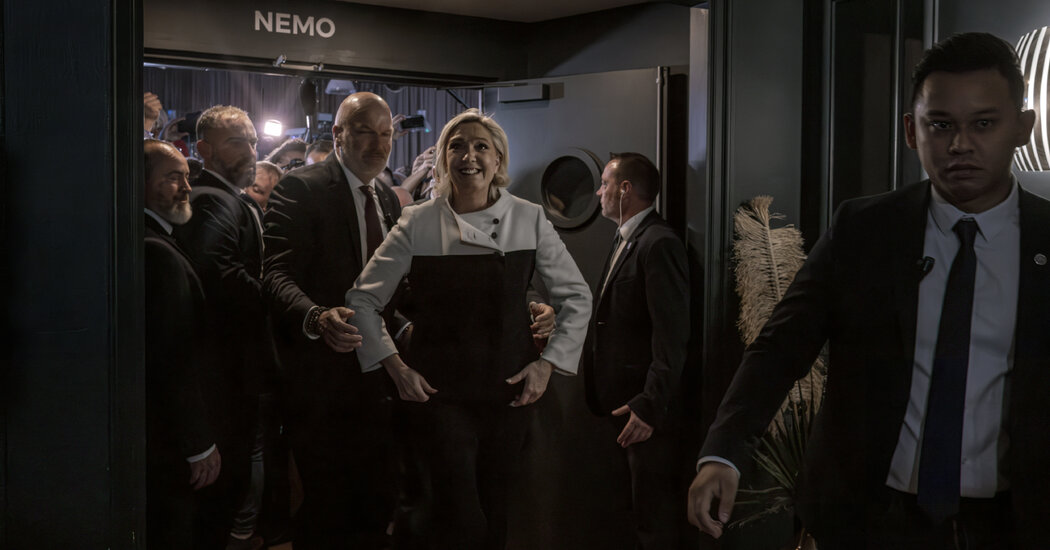France could be headed for sustained political deadlock after no party or alliance of parties appeared to have won an absolute majority of parliamentary seats, according to projections by French polling institutes based on preliminary results.
The immediate way forward is unclear, experts said, but the country could be headed for months of political instability, with President Emmanuel Macron facing a deeply divided Parliament, including two blocs firmly opposed to him.
“Without an absolute majority, the government will be at the mercy of opposition parties banding together” to topple it, said Dominique Rousseau, an emeritus professor of public law at the Panthéon-Sorbonne University in Paris.
The projections suggested that the National Assembly, France’s lower house of Parliament, will be roughly divided into three main blocs with conflicting agendas and, in some cases, deep animosity toward one another.
Pollster projections released Sunday night after polls closed in the final round of legislative elections indicated that a group of left-wing parties called the New Popular Front would win the most seats, followed by Mr. Macron’s centrist alliance and the nationalist, anti-immigration National Rally. It was not clear whether the centrists or the right-wing National Rally would be the second-largest bloc.
As it stands, none of the three major blocs appears able to work with the others. Each could try to cobble together a working majority with the smattering of smaller parties or independent lawmakers that will take up the rest of the lower house’s seats. But their ability to do so is uncertain.
“French political culture is not conducive to compromise,” said Samy Benzina, a public law professor at the University of Poitiers, noting that France’s institutions are normally designed to produce “clear majorities that can govern on their own.”
A scenario in which no party successfully secures an absolute majority — at least 289 of the lower house’s 577 seats — is not unprecedented in France. That is exactly what happened during the last legislative elections, in 2022. Mr. Macron still managed to put together functioning governments that have successfully passed bills over the past two years.
But that was only because Mr. Macron’s centrist coalition was large enough — with about 250 seats — and the parties opposed to him were too divided to pose a consistent threat. When it wasn’t, Mr. Macron’s government came dangerously close to falling.
This time, Mr. Macron’s options appear far more limited.
His centrist coalition cannot govern on its own. And few smaller parties — even more moderate ones on the left or the right — are eager to be associated with Mr. Macron, who is deeply unpopular and has three years remaining in his term.
The National Rally has already said it would govern only if it had an absolute majority, or if it was just short of one and thought it could strike a deal with enough other lawmakers to bridge the gap. Marine Le Pen, the party’s longtime leader, told French radio last week that it would not agree “just to be sitting in a minister’s seat without being able to do anything,” which she said would be “the worst betrayal” of the party’s voters.
On Sunday, a leader from one of the parties in the left-wing New Popular Front, Jean-Luc Mélenchon, said he would not enter into negotiations with Mr. Macron’s coalition to form a government together.
Some analysts and politicians have suggested the possibility of a broad, “rainbow” coalition of lawmakers, agreeing on a limited number of key issues and stretching from the Greens to more moderate conservatives. But several political leaders have already ruled that out.
Another possibility is a caretaker government of politically neutral experts that handles day-to-day business until there is a political breakthrough. This, too, would be a departure from French tradition.
France has a robust civil service that could run things for a time without a government. But the Summer Olympics are just weeks away, and Parliament usually approves a budget in the fall. Some analysts believe that Mr. Macron’s position will become so untenable he will have to resign, but he has said he won’t.
